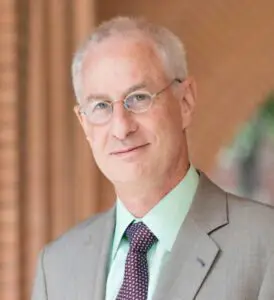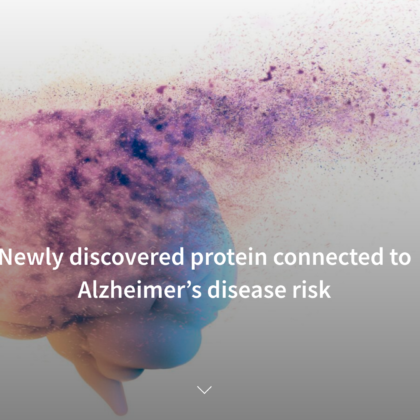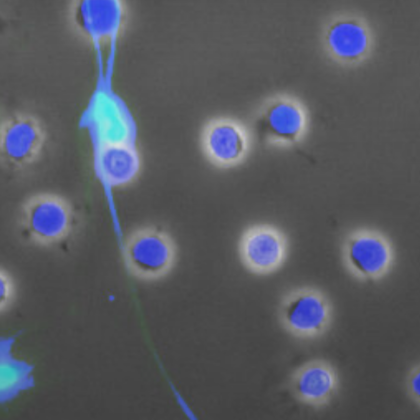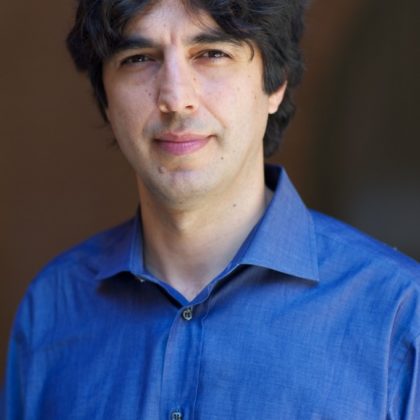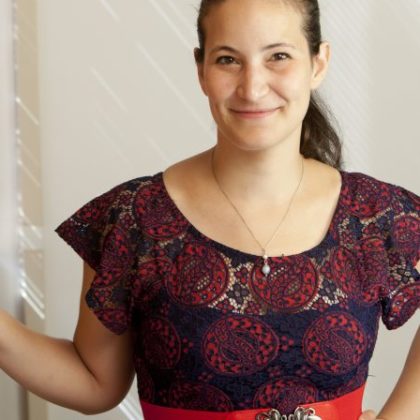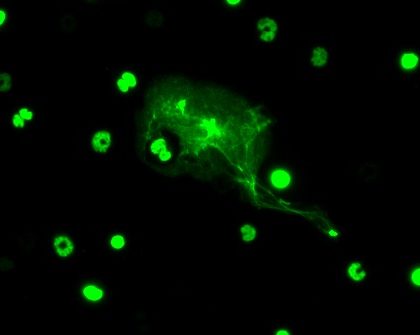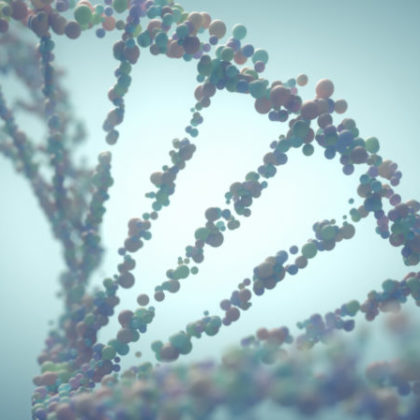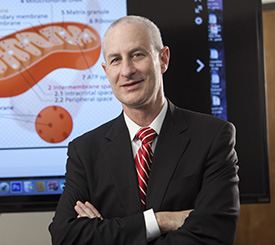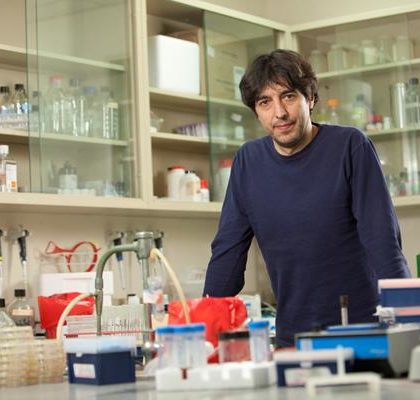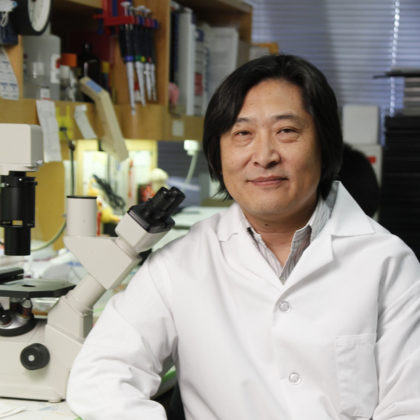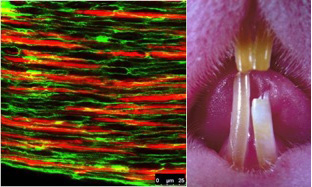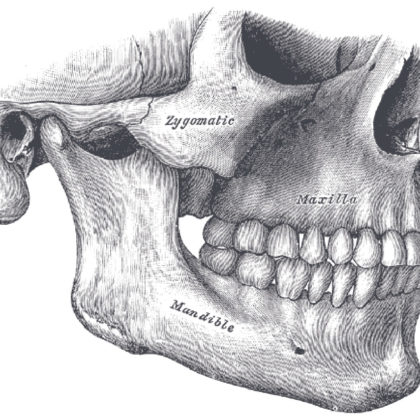Stories
USC study shows how cycles of a fasting-mimicking diet reduce insulin resistance, liver fat, immune system aging, and biological age in clinical trial patients
Cycles of a diet that mimics fasting reduce signs of immune system aging as well as insulin resistance and liver fat in humans, resulting in a lower biological age, according to a …
Pinchas Cohen named USC Distinguished Professor
Pinchas Cohen, dean of the USC Leonard Davis School of Gerontology, has been named a Distinguished Professor, an honor that is granted to a select group of USC academics each year. “These …
Fasting-mimicking diet reduces signs of dementia in mice
Cycles of a diet that mimics fasting appear to reduce signs of Alzheimer’s in mice genetically engineered to develop the illness, according to a new USC Leonard Davis School of Gerontology-led study. …
Newly discovered protein connected to Alzheimer’s disease risk
A mutation in a newly discovered small protein is connected to a significant increase in the risk for Alzheimer’s disease, expanding the known gene targets for the disease and presenting a new …
Study of mouse immune cells highlights differences between males and females
A new data set collected by USC Leonard Davis School of Gerontology researchers provides an important new resource for studying differences in immune system function by age and sex. The study, published …
New article outlines the characteristics of a “longevity diet”
Examining a range of nutrition research from studies in laboratory animals to epidemiological research in human populations provides a clearer picture of the best diet for a longer, healthier life, said USC …
How does air pollution influence Alzheimer’s risk?
Higher exposure to air pollution is strongly associated with cognitive impairment and Alzheimer’s disease, especially for people with certain genetic risk factors for the disease. Exactly how pollution interacts with these genes …
Bérénice Benayoun receives prestigious investigator-focused grant
The Maximizing Investigators’ Research Award directly supports scientists, providing stability, flexibility and more opportunities for breakthroughs. The National Institute of General Medical Sciences has awarded an R35 Maximizing Investigators’ Research Award (MIRA) …
Study highlights differences in immune cell function between male and female mice
A new USC study of a common, yet poorly understood type of white blood cell reveals the human immune cell’s response to pathogens differs greatly by sex and by age. In this mouse study, males proved much more susceptible to a condition called sepsis than females. However, the scientists also found that the female disease-defense system is …
Bérénice Benayoun receives GSA Nathan Shock New Investigator Award
The Gerontological Society of America (GSA)—the nation’s largest interdisciplinary organization devoted to the field of aging—has chosen Assistant Professor Bérénice Benayoun of the USC Leonard Davis School of Gerontology as the 2021 …
New award supports study of why females age differently than males
A new research project led by USC Leonard Davis School of Gerontology Assistant Professor Bérénice Benayoun aims to learn more about why female mammals, including humans, age differently than males. Sex dimorphism …
What and when we eat affects our immune system. Here’s how.
Professor Valter Longo, director of the USC Longevity Institute, is investigating how fasting and diets that mimic fasting’s effects can help immune function, including vaccine efficacy and the body’s response to infection …
Navigage, Rose Hills Foundations support Berenice Benayoun
From catching cognitive impairment earlier to understanding the genetics of age-related disease and health disparities, USC Leonard Davis School of Gerontology faculty conduct exciting research supported by organizations committed to helping others. …
Bérénice Benayoun studies possibility of rejuvenating genes
Bérénice Benayoun, assistant professor at the USC Leonard Davis School of Gerontology and principal investigator with USC Stem Cell, explores the role of epigenetics—the ways that genes turn “off” or “on”—in the …
Pinchas Cohen recognized as top influencer in aging field
A newly published list of 2017’s top 50 “Influencers in Aging” includes Pinchas Cohen, dean of the USC Leonard Davis School of Gerontology and principal investigator with USC Stem Cell. The list …
Drugs widely used in cancer therapy increase toxicity of chemotherapy in mice
A short-term fast appears to counteract increases in blood sugar caused by common cancer drugs and protect healthy cells in mice from becoming too vulnerable to chemotherapy, according to new research by …
Fasting-mimicking diet may reverse diabetes in mice
By Beth Newcomb A diet designed to imitate the effects of fasting appears to reverse diabetes, a new USC-led study shows. The fasting-like diet promotes the growth of new insulin-producing pancreatic cells …
Proper stem cell function requires hydrogen sulfide
Stem cells in bone marrow need to produce hydrogen sulfide in order to properly multiply and form bone tissue, according to a new study in Cell Stem Cell from the Center for …
Dental study provides wealth of stem cell details
An Ostrow School of Dentistry of USC study has uncovered new details on how bundles of nerves and arteries interact with stem cells and also showcases revolutionary techniques for following the cells …
Healthy stem cells can create benign tumors in jaw
A new study from the Ostrow School of Dentistry of USC published in Cell Stem Cell illustrates how changes in cell signaling can cause ordinary stem cells in the jaw to start …

